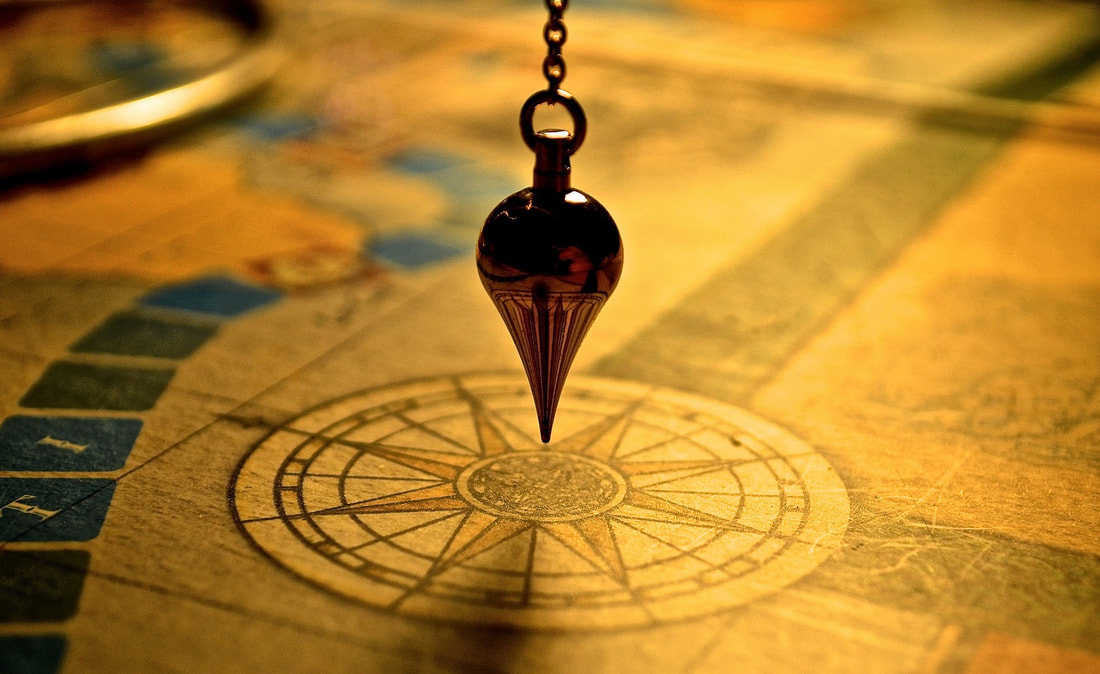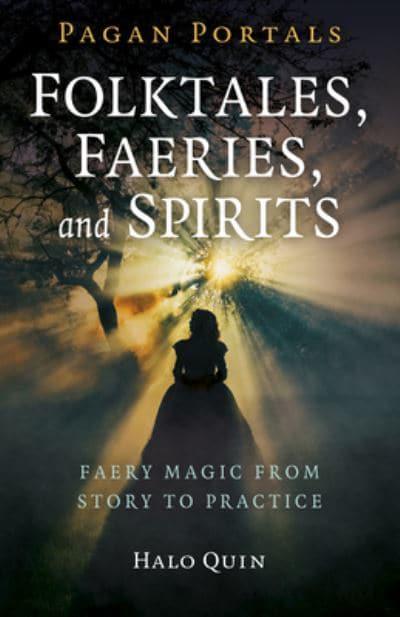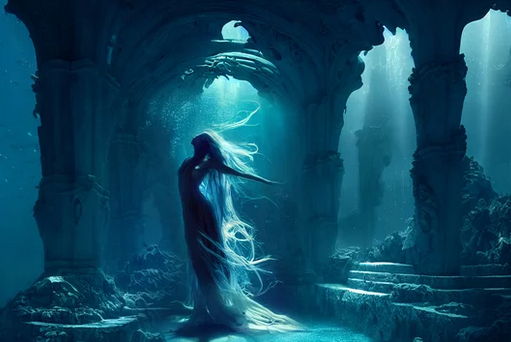|
14/12/2022 0 Comments Getting To Know Your PendulumThose of you who have followed me for a while will know that I don't really get on with pendulums. Tarot, lithomancy, oracle cards, lithomancy, scrying - all of these I can work with successfully, but the pendulum is one I have always struggled with. However, I recently bought a new pendulum and over the past few days I've had much more success with it! It's an amazonite pendulum, and not only is amazonite one of my favourite crystals, but it represents truth, clarity, and understanding our own thoughts and emotions amongst other associations, and so is the perfect crystal for pendulum work. Like most divination tools, it becomes stronger and more accurate the more attune ourselves with it (or it to us), and I have found this to be more true of the pendulum than any other divination tool. So, what can you do to aid in this process and ensure a harmonious relationship between you and your pendulum? Below are five ideas to get you started; this is by no means an exhaustive list, and you may find that some of these options work for you and some don't. As always, trust in your intuition and do whatever feels right for you.
Again, these are just a few simple ideas to help you on your journey when acquiring a new pendulum, but the most important thing is to have fun! The pendulum is a great tool for helping us understand ourselves as well as divining the future, and so it will react to our moods which is why making sure you are having fun with it is such an important element to pendulum dowsing!
0 Comments
I know I've been a bit lax with the book reviews recently - and blog posts in general! It has been a bit of a manic time, what with (trying) to buy a new flat (yesterday my third one fell through so it's back to the drawing board!), an ever-increasing workload, and preparing for Christmas with my family (which means lots of Christmas shopping!). But I am determined to get back into the swing of things, and what better way to start than with a book I highly recommend; Halo Quin's Folktales, Faeries, and Spirits. A Pagan Portals book (published by Moon Books) released this year, it's been on my list to review for a while, and I'm disappointed that it took me so long to get around to it! Now, disclaimer; I don't really work with the Fae as such. Many of you will know me as a water witch, and within my practice I work with a variety of water spirits. Can these water spirits be considered part of the Fae family? It is a question I have pondered for a while, and Quin's book really made me consider that on a much deeper level. I came to an answer, but that is a subject for another blog post! But essentially, just because you don't work specifically with the Fae doesn't mean you should discard this book. Many of the ways of working and experiences Quin describes are ones which correlate with my own workings with water spirits, and so whether you work specifically with the Fae or spirits more generally, this book is for you. My favourite types of books are ones which are filled with practical exercises, so you can learn and experience what the author is describing, and this is one of the reasons I loved Quin's latest offering. This isn't the type of book you read in an afternoon and then put on a shelf to gather dust. Every page is packed with ways you can begin your own journey, meditations and pathworking, and ideas to help you connect with the Fae and spirits. Quin writes in a way which is truly engaging, and her passion for the subject is evident throughout. I found myself reading a chapter and then putting the book down, eager to dive into the exercises listed, inspired by Quin's own enthusiasm to give them a go. Another reason that this book appealed to me is Quin's balance between historical information and UPG (unsubstantiated personal gnosis). She acknowledges that everyone's path, and experiences, are different, and none are less valid than others. I personally think this is such an important element within pagan practice, and I always find it encouraging to see other practitioners supporting this approach. Related to this is the amount of emphasis Quin puts on doing your own research, and her suggestions on how to find the local resources to do so. I am a big believer in working with your local landscape to deepen your practice and connection with the world around you, and so again this was another element of Quin's book which really resonated with me and my own practice. This book feels like it is written for beginners, but as someone who has been practicing for over twenty years, I gained a lot from reading it and so would recommend it to those of any level of experience who are looking to connect with the Fae and the spirits around them. This is absolutely worth the read, and I know for certain a book I'll be working with for a while yet! To purchase a copy of this book, check out www.johnhuntpublishing.com/moon-books/our-books/pagan-portals-folktales-faeries-spirits Or, if you would prefer to support independent bookstore, then check out https://uk.bookshop.org/books/pagan-portals-folktales-faeries-and-spirits-faery-magic-from-story-to-practice/9781785359415?aid=7835 To find out more about Halo and the other books she has written (and she has some very interesting ones, her Gods and Goddesses of Wales is top of my list to check out next), then follow some of the links below: Publishers author section: www.johnhuntpublishing.com/moon-books/authors/halo-quin Halo's website: www.haloquin.net Books by and recommended by Halo: https://uk.bookshop.org/shop/Quin
Links to various projects and social media: www.linktr.ee/haloquin For this blog post, I thought I would go with something a bit fun and light-hearted that I discovered whilst doing some serious research. As you may have guessed from the title, I was researching 'why don't I dream'? I used to have such vivid dreams, but for the past couple of years I have had very few dreams. Or do I dream, but I just don't recall them? The only ones I do recall have either been insanely bizarre, or full on nightmares. The theory I like the most is that dreams are our subconscious 'talking' to us, and I'm just so God Damn zen and in-tune with myself that my subconscious has nothing it needs to bring to my attention. However, there was another theory I came across, and one which is definitely more entertaining. Can you imagine a group of peoples who just never dream at all? Not the occasional dream, not dreaming but just not recalling it, but just never experience dreams? According to the ancient Greek historian Herodotus, this group of people did exist many thousands of years ago in North Africa near a mountain named Atlas. Below are a few lines from book Four of his 'Histories': "The natives call this mountain 'the Pillar of Heaven' and they themselves take their name from it, being called Atlantes or the Atlanteans. They are reported not to eat any living thing, and never to have any dreams." Yes, that's right - Atlanteans. If you have never heard of the lost city of Atlantis, it is a mythical place that existed several thousand years before Plato's time (Plato being the Greek Philosopher who originally wrote about the story of Atlantis). Below is an excerpt from The National Geographic website on Atlantis, and I recommend you check them out for more information on this lost city: "The founders of Atlantis, he said, were half god and half human. They created a utopian civilization and became a great naval power. Their home was made up of concentric islands separated by wide moats and linked by a canal that penetrated to the center. The lush islands contained gold, silver, and other precious metals and supported an abundance of rare, exotic wildlife. There was a great capital city on the central island." https://www.nationalgeographic.com/history/article/atlantis But what happened to Atlantis? There is a reason it is called 'The Lost City'. It is said that these half-God, half-human beings, who through their higher intellect and wisdom created one of the greatest civilizations in the world became greedy and 'morally bankrupt'. As punishment, the Gods sent fire and earthquakes which sunk the city beneath the waves.
There is little evidence to show that Atlantis actually existed, although researchers and enthusiasts have never ceased the search for this mythical place. There have been several theories put forward as to the physical location of Atlantis. But regardless, it is a myth which has persisted through the ages and still captures the imaginations of many. As someone who works very close with the element of water, I know people who incorporate Atlantean energies into their practice, although it is not something I personally work with. It is said that after the cataclysmic events which resulted in the sinking of Atlantis, many refugees fled into North Africa and Persia among other locations, and those who went to North Africa settled near Mount Atlas. As such, it is believed that these are the same Atlanteans that Herodotus talks about in his histories. Is it possible then that those people who don't dream are actually descendents of this mythical race of superbeings? Mortal descendents of Gods and the like is nothing new, and in a lot of cultures Gods and spirits would sometimes lie with humans. Is it possible that after fleeing Atlantis and settling in North Africa, the Atlanteans integrated themselves into this 'new world' and birthed a line of Atlantean descendents? I mean, honestly, probably not. Whether you believe Atlantis existed or not, I'm pretty sure there is a much more rational and scientific reason as to why I don't dream, or at least don't recall my dreams. But, being a descendent of one of the most advanced and spiritual civilizations ever to existed is a lot more fun to imagine, so maybe I'll stick with that! |
The Weekly Witch:Once I week I talk about something 'witchcraft' related I have done with my week. How we incorporate witchcraft into our every day lives is always a topic that has interested me, so I wanted to start this blog to explore it further! Archives
August 2023
Categories |



 RSS Feed
RSS Feed
